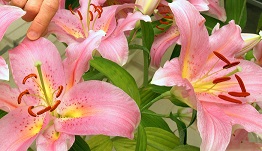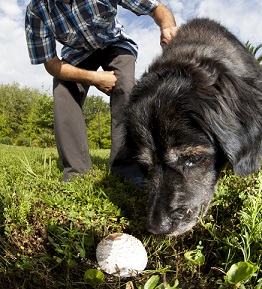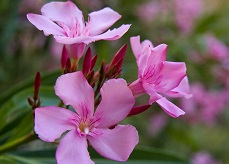Written by Samantha Walter-Cano, Edited by Andrea Lazzari & Yvonne Florian
In honor of National Pet Day, which was April 11th, let’s bring awareness to some common household and ornamental plants which may be harmful to our furry friends.

Holiday Plants
When the holiday season is in full gear, it is common to want to decorate the home with beautiful plants. However, while adorning the house, it is important to consider which plants may be toxic or fatal to our indoor pets. Here are a few common holiday plants that are toxic to pets:
- Holly (Ilex, spp)– One popular holiday plant is Holly. Holly is toxic to pets. So it is important to keep it away from dogs and cats. Common holly poisoning symptoms are digestive issues, excessive drooling, loss of appetite, and blood in the mouth.
- Poinsettias (Euphorbia pulcherrima)– While these plants are beautiful, they are mildly toxic to dogs. It is a good idea to keep these plants out of reach of all pets as they may cause diarrhea.
- Christmas Cactus (Schlumbergera bridgesii)– Another popular holiday plant is the Christmas cactus. While Christmas cacti are not toxic to pets, ingesting the plant can cause irritation in the stomach and diarrhea.
Other Common Toxic Plants
Some common everyday landscape and “house” plants can also be harmful to pets, causing health problems and even death. If your pet comes into contact with any toxic plants, make sure to call your Veterinarian immediately.

The following is a short list of a few common pet-toxic household and landscape plants:
- Lilies (Lilium)– Asiatic lilies, peace lilies, tiger lilies, and day lilies are common toxic plants. Cats are particularly susceptible to their toxicity, which can cause feline kidney failure. If ingested by dogs, lilies can upset the stomach and possibly cause intestinal blockage. Gloriosa lilies, while technically not a lily, are a beautiful tropical climbing plant which is still highly toxic to animals.
- Daffodils (Asphodelus)– these lovely springtime bulbs are highly toxic to both cats and dogs. These can cause upset stomach and severe vomiting. In rare cases, ingesting this plant can cause tremors, respiratory distress, and heart problems.

Oleander flowers. UF/IFAS Photo by Tom Wright. - Oleander (Nerium)– Oleander is extremely toxic to all pets. Even the caterpillars which feed on oleander leaves are dangerous to animals. Oleander causes severe vomiting, abnormal heart rate, seizures, and tremors in all mammals. The caterpillars are toxic if ingested. Additionally, Oleander moth caterpillar body hairs can get lodged in the skin of the nose, feet, mouth, and throat of curious pets causing infection and expensive treatment.
- Draceana (Draceana deremensis)- This attractive landscape and house plant is highly toxic to pets. These plants drops leaves continuously, which may attract curious felines who might like to chew on grassy leaves.

The UF/IFAS Extension Santa Rosa County website blog entitled, “Plants Poisonous to Pets”, has a short list of some other pet-toxic plants.
American Kennel Club has more information on plants harmful to pets, please visit the American Kennel Club’s akc.org.
The American Society for the Prevention of Cruelty to Animals (ASPCA) has an exhaustive list of plants toxic to cats & dogs. For cat list please visit aspca.org/pet-care/animal-poison-control/cats-plant-list, or list of dog-toxic plants, Toxic and Non-Toxic Plant List – Dogs | ASPCA.
Your local UF/IFAS Extension county office will also have lists of plants which are toxic to horses, cattle, and other grazing animals. Please visit your local county Extension office for more information on those topics.
 1
1

